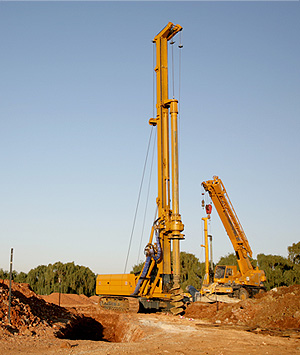Just Compensation and Value for Your Property Rights
For over 60 years, Sullivan, Workman & Dee, LLP has represented clients in the private, public, and non-profit sectors in all phases of California Eminent Domain Law from first notification, offer, and appraisal to settlement, mediation, or trial.
Eminent domain (also called Condemnation) is the power of governmental agencies to take private property for public use. Property and business owners are entitled to just compensation for the taking of their property interests including the fair market value of their real property, improvements, fixtures, and equipment. In addition, compensation can also include severance damages, loss of business goodwill, relocation assistance, and other claims. Each condemnation case is unique and some may touch on other related areas including the California Environmental Quality Act (CEQA), real estate law, zoning and land use law, and landlord/tenant disputes.
What’s New in Eminent Domain?
- When Trying To Protect Your Eminent Domain Rights, You Are On The Clock
- What Clergy And Lay Leaders Of Religious And Non-Profit Organizations Need To Know About Eminent Domain
Just Valuation and Compensation
The Recovery Process
“Just Compensation” is the recovery you are legally entitled to receive under state and federal law. Sadly, however, business and home owners without good legal representation can often walk away with a fraction of what they are entitled to receive.
Case in point: A client was offered $64,000 (based on the government’s appraisal) for 900 square feet of its car dealership property to make room for the widening of a freeway. The firm negotiated a settlement of $1,340,000 for loss of business goodwill, severance damages, and other compensation.
Our attorneys have handled thousands of eminent domain cases and work with expert consultants to help you maximize the value of your recovery.
You may be entitled to recover compensation for:
- Value of the land taken
- Severance damages caused by the taking or project if only part of your land is taken (includes damages from access impairment, resulting size and shape, loss of frontage, increased cost to develop, vibrations, noise, etc.)
- Value of improvements, fixtures, machinery, and equipment installed on the land taken
- Value of leasehold interests taken
- Loss of or damage to business goodwill caused by the taking
- Accrued interest
- Relocation benefits
- Attorneys and appraiser fees, other litigation expenses, and court costs.

Valuation
Government seizures by eminent domain or inverse condemnation require fair valuations.
Facing an eminent domain situation, aside from the inconvenience involved and perhaps a personal attachment to a specific property, the main concern of most people is compensation. There are innumerable instances of public and quasi-public entities armed with the power of eminent domain providing only minimal compensation to those affected.
That’s where valuation comes in. Courts can and should look at all the evidence – not just what the government says something is worth. In an ideal situation, an adjacent and nearly identical property that had just been sold would provide a clear, credible answer to the question: what is my property worth? In fact such an example is very rare. Thus, those trying to value a property accurately and fairly should consider a wide range of evidence, including unknowns such the potential to be rezoned and/or developed to a “higher and better” use.
Valuation Litigation
When you’re up against a entities with ample or creative resources, you need experienced litigators and negotiators on your side. In addition to the overall value of the property, we represent our clients in the areas of:
- Leases and tenant disputes
- Zoning, planning, and easement issues
- Lot line and boundary disputes
- Establishing lost business goodwill (including impact on operating expenses, loss of patronage, or relocation to a less favorable site)
- Liens, loans, and deed restrictions
Get Started Early
Private businesses and homeowners facing condemnation and valuation litigation are up against eminent domain experts and should seek legal counsel early in the process.
Even before lawsuits are filed, we represent our clients at public hearings before planning commissions, city councils, boards of supervisors, and related state and federal boards and commissions if necessary.
We are veterans in pre-condemnation strategies to achieve multi-million dollar settlements or jury verdicts for our clients. When it comes to eminent domain, whether the client or claim is large or small, we know what we are doing.
Types of Properties Represented in Eminent Domain Cases:
- Auto and truck dealerships
- Automotive repair
- Banks and other financial institutions
- Bars and social clubs
- Churches and other religious communities
- Cities and counties
- Commercial and industrial properties
- Convenience stores
- Charities and foundations
- Fast food chains
- Farms and orchards
- Food processing facilities
- Gas stations (chain and independent)
- Golf and country clubs
- Grocery stores (chain and independent)
- Apartment and condominium complexes
- Hotels and motels
- Hospitals
- Manufacturing and distribution facilities
- Malls and shopping centers
- Museums
- Office buildings and parks
- Oil companies
- Paint stores
- Parking facilities
- Ranches
- Restaurants (chain and independent)
- Retail outlets
- RV and Self-storage facilities
- Schools
- Single-family dwellings
- Universities
- Vacant land
- Warehouses and packing facilities
Fees Should Not be an Issue in Eminent Domain Cases
We often represent our eminent domain clients on a contingency fee basis, where clients do not pay attorney fees unless we win.

